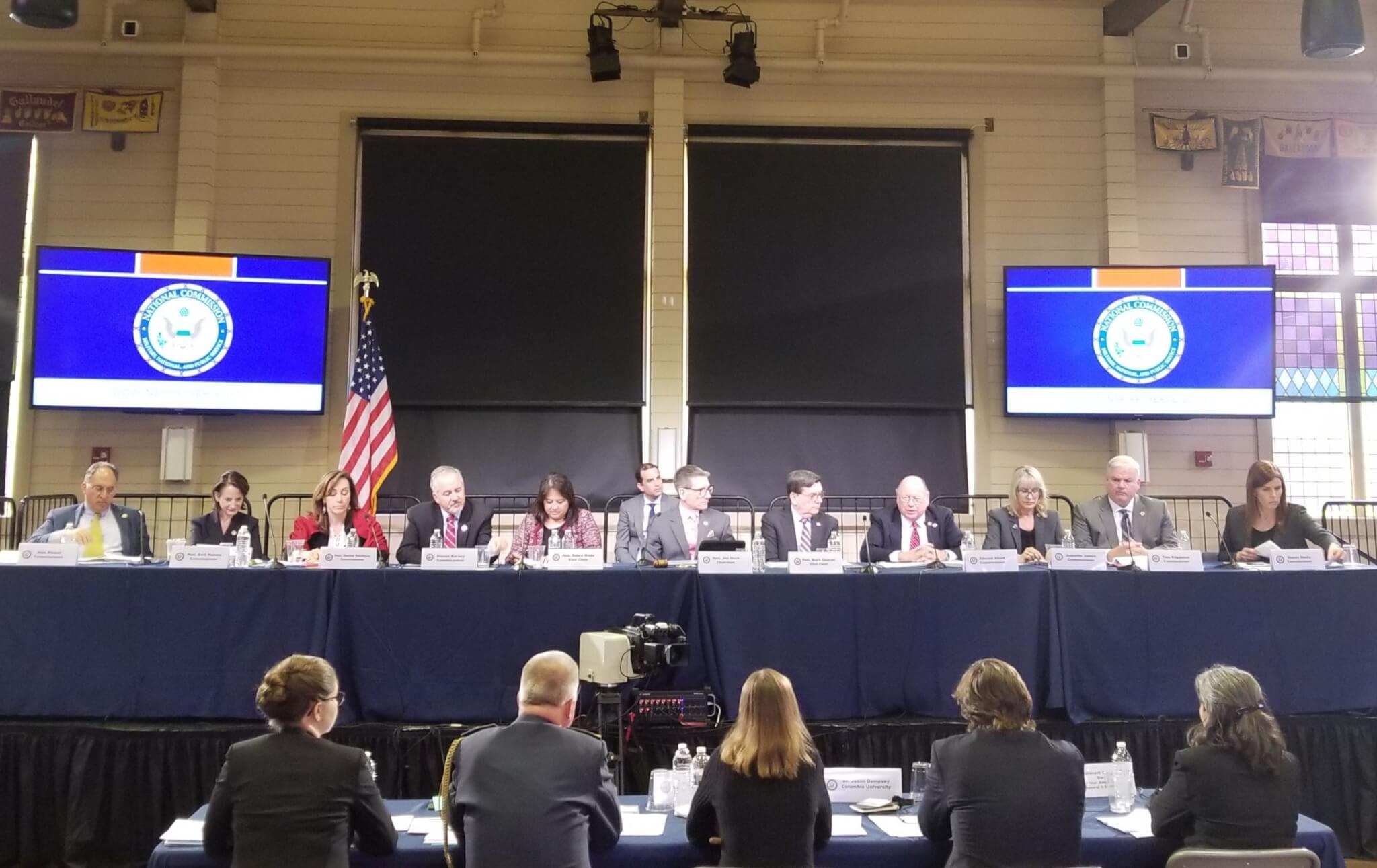Chairman Joseph J. Heck, Vice chair for Military Service, Debra Wada, Vice Chair for National and Public Service, and their fellow commissioners comprising published their final report to Congress.
In the Commission’s 255-page report, a plethora of important recommendations are made to Congress ranging from improving agencies’ hiring tools for military members by avoiding avoid keyword-based resume reviews and self-assessments to implementing a modern talent-management system across the Federal Government.
Most notably, in historic fashion, the Commission has recommended to Congress, “that Congress amend the [Military Selective Service Act] to eliminate male-only registration and expand draft eligibility to all individuals of the applicable age cohort.” [See Report at 139.]
This is just the beginning.
Most importantly, this is a recommendation, nothing more. The Military Selective Service Act still stands on the male-only language U.S. District Judge Gray Miller of the Southern District of Texas has ruled unconstitutional in a declaratory judgment.
With the Commission’s years of hard work forever memorialized in this historic report, the baton has been returned to Congress for it to decide whether to amend this controversial law. Just as a commander may ask for Courses of Action (COA) to be drafted in order to aid her or him in their military decision-making process, Congress has now been given an extraordinary COA or, in this case, a report to aid its important task ahead.
Throughout the development of its report, the Commission heard 68 panelists across 14 public hearings in 2019. Among the many panelists heard, Mr. Doug Bandow, Senior Fellow, Cato Institute, provided testimony. In addition, Dr. William Galston, Ezra K. Zilkha Chair and Senior Fellow, Brookings Institution, provided testimony for the Commission to consider. Many civilian and military professionals, such as Major General John Evans, U.S. Army, Representative, U.S. Army Training and Doctrine Command provided critical and unique insight into this development. Thus, the Commission’s recommendations to Congress were not created in a vacuum.
What’s next?
If Congress does successfully amend the MSSA to remove the law’s male-only language and replace it with more inclusive language, the biggest hurdle will be educating the public. Unsurprisingly, the Commission chose educating the public as the its first recommendation.
To effectively educate the American public on national and public service, the Commission recommended that Congress appropriate $450 million per year for civic education and service learning, which, given the current state of financial affairs in our Country, may be a challenge for Congress. [See Report at page 124.]
However, with a dwindling population of military veterans in Congress combined with an arguably growing disconnect between civilian U.S. Citizens and their military, educating young Americans on the role of public service is long overdue.
NCFM v. Selective Service System
Mr. Harry Crouch, president of the National Coalition For Men, a non-profit men’s rights organization that filed a lawsuit against the Selective Service System in 2013, said, “the Commission has many good suggestions.” He further stated, “my principal concern is that whatever system they choose, it’s there for everyone.”
Responding to whether Mr. Crouch agrees with the Commission’s recommendation to better fund civics education in our country, he stated, “he is excited to hear people talking about civics again.”
Author’s opinion
As a proud stepfather to four daughters and former infantry officer, I echo several Senator’s public concerns, such as Senator Cruz’s, about drafting our daughters into military service. However, I support the Commission’s recommendations to Congress entirely and wholeheartedly.
I am proud to say that my daughters can recognize and explain the meaning behind the colors of the Vietnam Service Medal or the purple heart when they see them during their days. I make it a point to direct their attention to unique military-things throughout the day and explain the different roles each branch of our government plays. As such, like many complex and delicate issues, we — as Americans — tackle, many can be solved through education. Like many Americans, I will be waiting to hear Congress’s response its Commission’s report when our Nation roars back from this current crisis.
Be on the lookout for a more in-depth article addressing this historic report and the many legal complexities that will arise as we head further down this uncharted road together.
Read comments







































